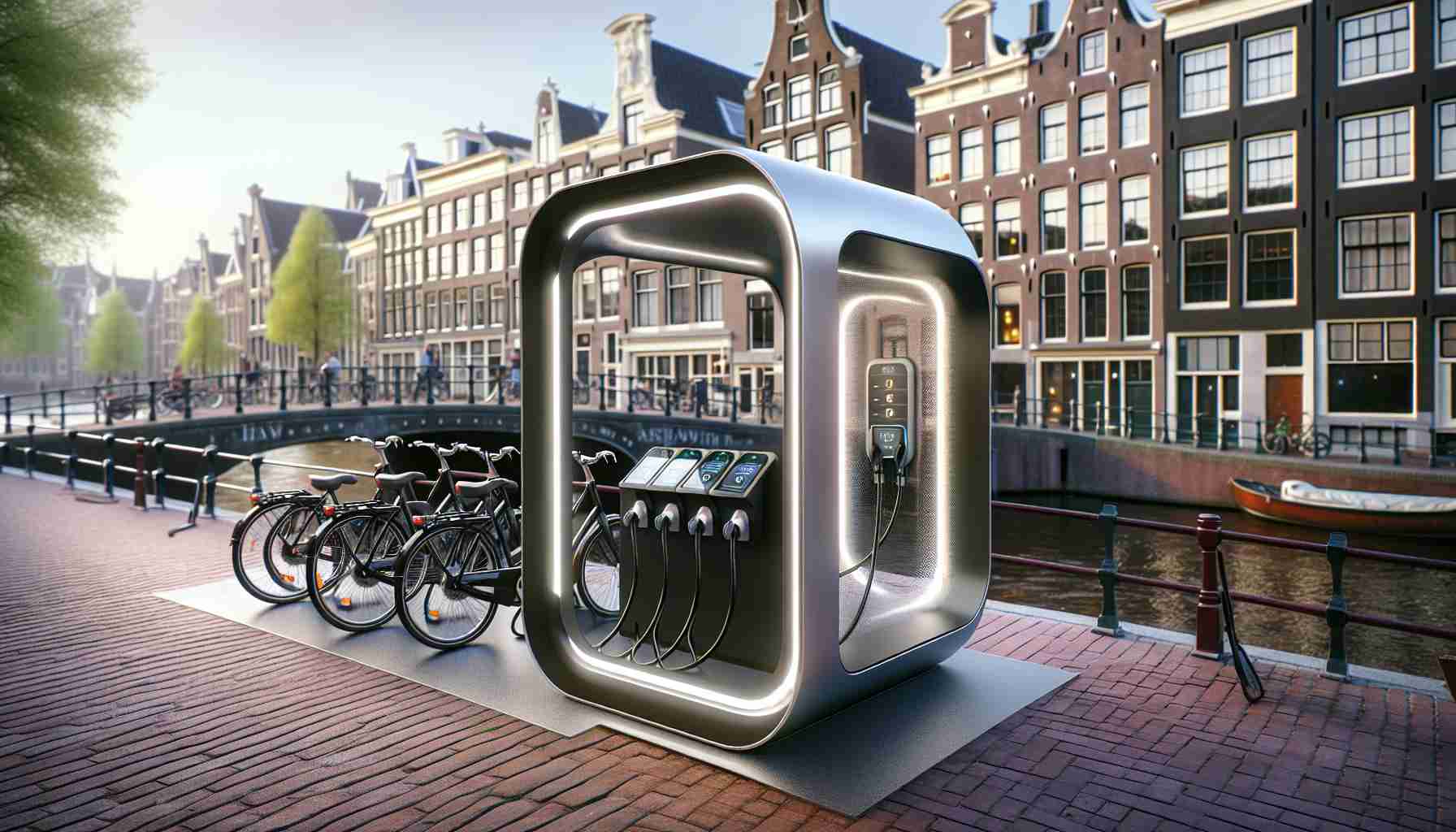Amsterdam has taken a giant leap towards sustainable transportation with the opening of a groundbreaking electric bike charging station. The newly installed bike stand, located at the Mohawk Valley Gateway Overlook, has the ability to wirelessly charge up to five CDPHP Cycle! e-bikes. The collaboration between regional transportation and energy research organizations, including CDTA, NYSERDA, and Re:Charge, has paved the way for a more environmentally conscious future.
The ceremony commemorating the launch of the charging station was attended by local politicians and officials who expressed their enthusiasm for this remarkable development. State Assemblyman Angelo Santabarbara highlighted the significance of alternative transportation in promoting healthier lifestyles and more sustainable communities. He emphasized that this project would serve as a guiding example for other cities to adopt similar initiatives.
Mayor Mike Cinquanti viewed this charging station as a symbolic connection between Amsterdam’s historical role as a transportation hub and its future as a pioneer in eco-friendly solutions. Noting the involvement of New York-based companies like Re:Charge, Cinquanti expressed pride in Amsterdam’s role as a leader in embracing innovative recharge solutions.
The CDTA CEO, Carm Basile, hailed the bike program’s success, with the number of e-bikes steadily increasing over the years. Basile anticipates that all 600 bikes will eventually become e-bikes, simplifying operations for the organization’s team.
Assemblywoman Pat Fahy, who is actively promoting alternative transportation, emphasized the importance of legislation requiring new constructions to be electric vehicle ready. This forward-thinking measure will ensure that charging capabilities are readily available for trucks, cars, and even bicycles, making eco-friendly transportation more accessible.
Democratic Congressman Paul Tonko, an Amsterdam native, praised the wireless charging station as a step in the right direction towards combating climate change. Tonko stressed the urgent need to accelerate efforts in clean energy and electrification to meet the demands of our changing planet.
In addition to the charging station, NYSERDA is investing $32 million in its Clean Mobility Program to support community-based electric micromobility systems. Proposals for this program are expected to be submitted by August.
Amsterdam’s wireless charging station marks a significant milestone in the city’s commitment to sustainability and sets an inspiring example for others to follow. With ongoing collaborative efforts and continued innovation, the future of transportation looks brighter and greener than ever.
The opening of the electric bike charging station in Amsterdam is indicative of the growing trend towards sustainable transportation. The electric bike industry has been experiencing steady growth in recent years, with an increasing number of consumers opting for electric bikes as a greener alternative to traditional vehicles. According to a report by Allied Market Research, the global electric bike market is projected to reach $24.3 billion by 2025, with a compound annual growth rate of 7.9% during the forecast period.
One of the key drivers of this growth is the rising awareness of climate change and the need to reduce carbon emissions. Electric bikes offer a clean and environmentally friendly mode of transportation that can help mitigate the adverse effects of traditional vehicles on the environment. In addition, the advancements in battery technology have made electric bikes more efficient and practical for daily commuting.
However, the electric bike industry also faces several challenges. One of the major obstacles is the lack of proper infrastructure, such as charging stations, which can limit the usability and convenience of electric bikes. The opening of the wireless charging station in Amsterdam addresses this issue and serves as a model for other cities to invest in similar infrastructure.
Another challenge is the cost of electric bikes. While the prices have been gradually decreasing, electric bikes are still more expensive than regular bicycles. This can deter some potential buyers from making the switch to electric bikes. However, with increasing demand and advancements in technology, it is expected that the prices of electric bikes will continue to decline, making them more accessible to a wider range of consumers.
To further support the growth of the electric bike industry, governments around the world are implementing policies and regulations to encourage the use of electric bikes. This includes incentives such as tax credits, subsidies, and dedicated bike lanes. Additionally, the development of new battery technologies and advancements in electric motor systems are expected to enhance the performance and range of electric bikes, making them even more attractive to consumers.
Overall, the opening of the electric bike charging station in Amsterdam is a significant step towards a more sustainable future. With the continued growth of the electric bike industry and the implementation of supportive policies and infrastructure, it is expected that electric bikes will play a crucial role in transforming the way people commute and reducing the carbon footprint of transportation.
Related Links:
Allied Market Research – Electric Bike Market






















